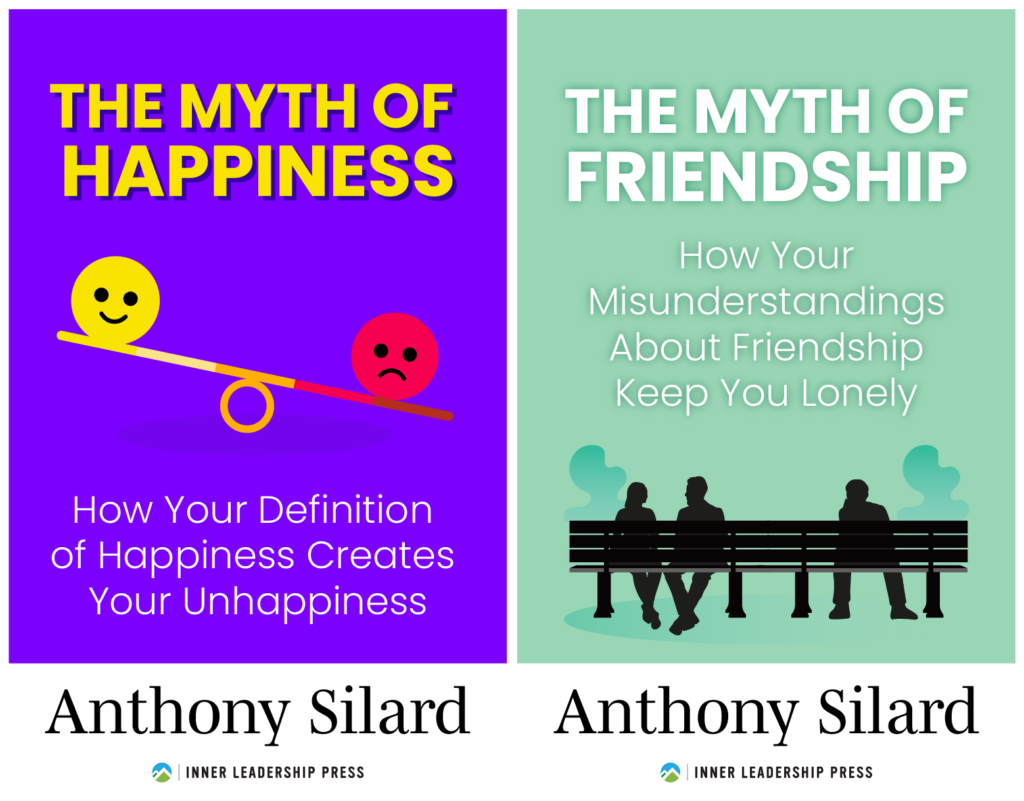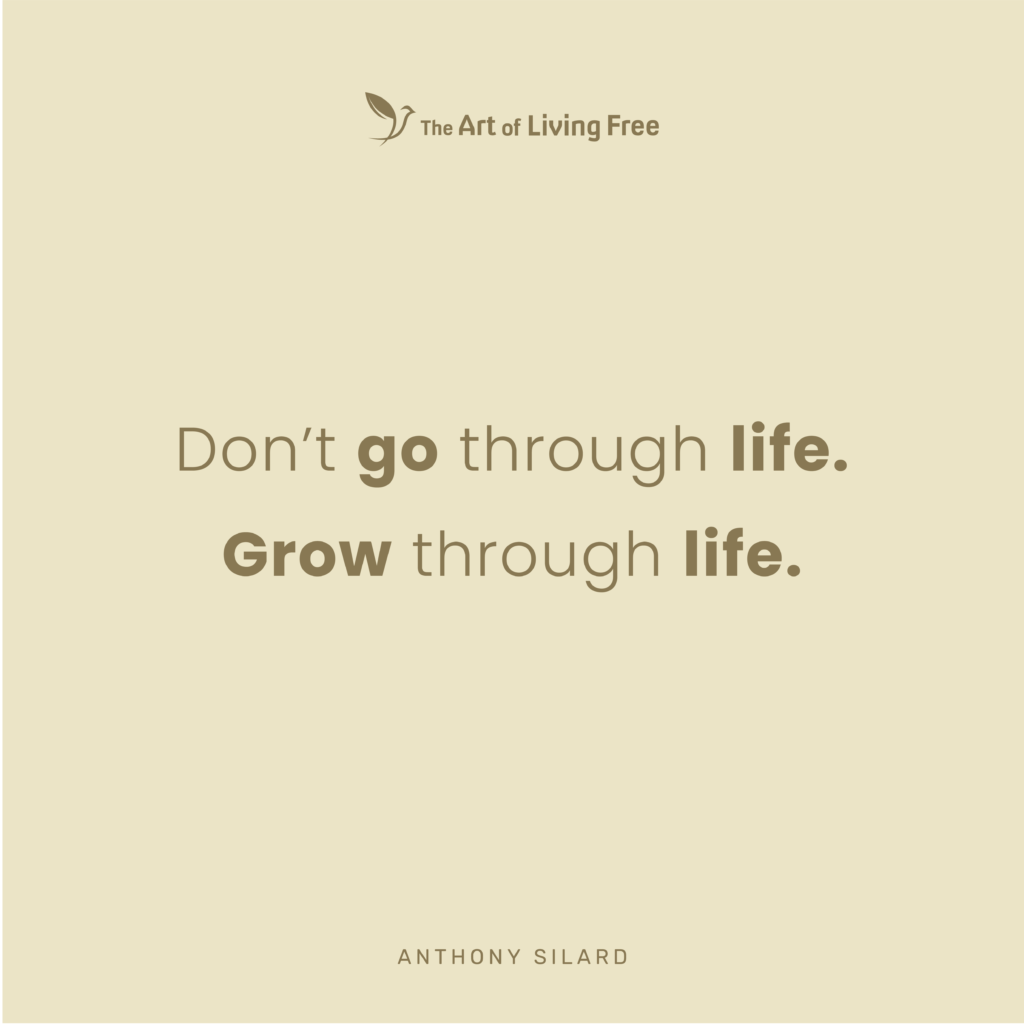The Game You Never Win But Can’t Stop Playing
You can also read this article in Psychology Today here
Greetings from Kenya, where I just completed a leadership program for 125 highly motivated and brilliant rural school leaders!
I’m thrilled to offer you two powerful resources that can help transform your
life and relationships: The Myth of Happiness: How Your Definition
of Happiness Creates Your Unhappiness and The Myth of Friendship: How Your Misunderstandings About Friendship Keep You Lonely—and I’m giving them to you
for FREE as part of The Art of Living Free community!

These books will soon be available to all subscribers, and I’ll be sending you the download link in the next month. Stay tuned!
Why Should You Read These Books?
In a world where we’re often told what happiness and friendship should look like, these books offer a fresh perspective. You’ll learn:
· How your current definition of happiness might be contributing to your unhappiness.
· Why some common misconceptions about friendships leave us feeling isolated, and how to foster more meaningful connections.
· Simple, actionable strategies that can lead to real improvement in your happiness and relationships.
Share the Joy
I encourage you to dive into these books and, of course, share them with your friends and family. Together, we can create a ripple effect of positive change—more joy, more connection, and less loneliness in our world.
Thank you for being part of The Art of Living Free. I can’t wait to hear how these resources impact your life.
Stay tuned for the links, and let’s start building a community of happier, more connected people.
– – – – –
Three decades ago while I was a Peace Corps volunteer in Kenya, I took a trip by bus through Tanzania. After traveling from Nairobi to Arusha and doing a camping safari in the Serengeti, I traveled to Moshi, a small town about an hour east of Arusha.
That Little Mountain
I sat on the bus next to a very congenial Tanzanian man. That’s what I loved about Tanzania, people were so friendly wherever I went. We talked the whole way there in Swahili; it was a challenge, as he—like most Tanzanians—spoke Kiswahili sanifu: the purest, most nuanced Swahili spoken anywhere.
“Are you going to climb Mt. Kilimanjaro?” he asked me as I looked out of the bus window at the mountain’s stunning snow-capped peaks.
I thought about how arbitrary the borders are in most African countries: Mt. Kilimanjaro is in Tanzania because, when the Europeans carved up Africa at the Berlin Conference in 1885, the Germans desperately wanted a mountain as a counterpoint to their relatively flat country.
“Not this trip,” I replied. “But I climbed Mt. Kenya last Christmas.”
“Oh, you mean yule mdogo – ‘that little mountain’,” he said, and made a brusque gesture with his hand. Mt. Kenya, at 17,000 feet, is just over two thousand feet smaller than Mt. Kilimanjaro.
Why We Compare
As it turns out, we human beings have a strong need to form accurate, stable perceptions of our abilities and life outcomes. When it’s difficult to find objective standards with which to evaluate ourselves in terms of how successful, creative, or happy we are, we seek out similar others (called our “reference group”) and then measure ourselves by how we are faring in life relative to them.
The phenomenon of social comparison was first identified by the social psychologist Leon Festinger. If you’re doing better than similar others in any specific dimension of your life you feel insecure about, Festinger observed, you can raise your self-esteem by comparing yourself to them.

Conversely, if you are the one doing worse than others similar to you, your self-esteem diminishes. It is for this reason that students are likely to have a higher academic self-concept if they are attending a high school in which most students are average performers.
Once they graduate and go to a more demanding university—as Oxford University professor Herbert Marsh and his colleagues found in a longitudinal study of Hong Kong students—their academic self-concept tends to decrease.
A Losing Proposition
As happens in most casinos in the world, you enter social media seeking to enhance your self-esteem, but the cards are stacked against you. The current problem is worse than ever because the casinos have now entered our homes, schools, restaurants, stadiums, and every other place you can access the Internet on your phone.
Never before has the social information of similar others been so readily available for you to digest than since the genesis of Facebook and other social media sites where you can bring these folks into your network under the stunningly inaccurate moniker of “friends.”
Yet, as in the casino, your chances of winning the social comparison game—whether it’s about who has the best job or the hottest body or who went on the best vacations—are infinitesimal.
Why? There’s always someone higher up on the hill. It is for this reason that a study of 584 Facebook users in Germany found that the most common reported emotion among Facebook users is envy.
You Just Can’t Win
If you are in doubt about the toxic effects of social comparison, consider a study in which researchers used facial recognition software to analyze the faces of Olympic medalists. It would stand to reason that the silver medalists would be happier than the bronze medalists—having beaten them in the competition in their field, after all.
Puzzlingly, however, the researchers discovered the opposite: the bronze medalists were happier. Why? For the answer, consider to whom each athlete was comparing themselves.

“I’m glad I received a medal,” the bronze medalist is likely thinking. “So many talented athletes didn’t.” And the silver medalist?
“I almost beat him or her,” they are likely thinking as they look enviously at the gold medalist. “I know I’m the better athlete; if I had just done something slightly differently, I would have won.”
Exit the Stadium
How can you call it quits and leave the game? How can you once and for all exit the stadium of social comparison and make your way over to a new stadium in which your self-esteem has nothing to do with how others are faring in their careers, their intimate relationships, or their friendships?
In this new stadium, you will reclaim your power and your capacity to help others. How? No longer viewing them as a threat to your self-esteem, a new level of attunement will emerge within you. This compassion will help you connect with their vulnerability and suffering, and help you desire to see them “become,” as Carl Rogers used to say , and move steadfastly toward their own life goals.
To your developing your life vision to help rather than compare with others,
Anthony
– – – – –

Consider the word “pre-judice”: it comes from “before” and “judgment.” Prejudice is to judge someone before speaking with them.
The truth is that you will never understand another person unless you listen to them and immerse yourself deeply into their experience.
And that’s only the beginning of understanding: as the latest research has found, personality is malleable; we are constantly changing.
Each of us can make the decision to get to know people of other ethnicities on a human level and then share what we learn with others.
Why? Our future depends on it.
What conversations do you need to have to allow people different from you to become more human in your mind?
If you have enjoyed this article, you can receive similar articles by Dr. Anthony Silard in your email inbox. Every two weeks, we send the latest issue of The Art of Living Free Newsletter to over 300,000 people in our global community. Please join us!



